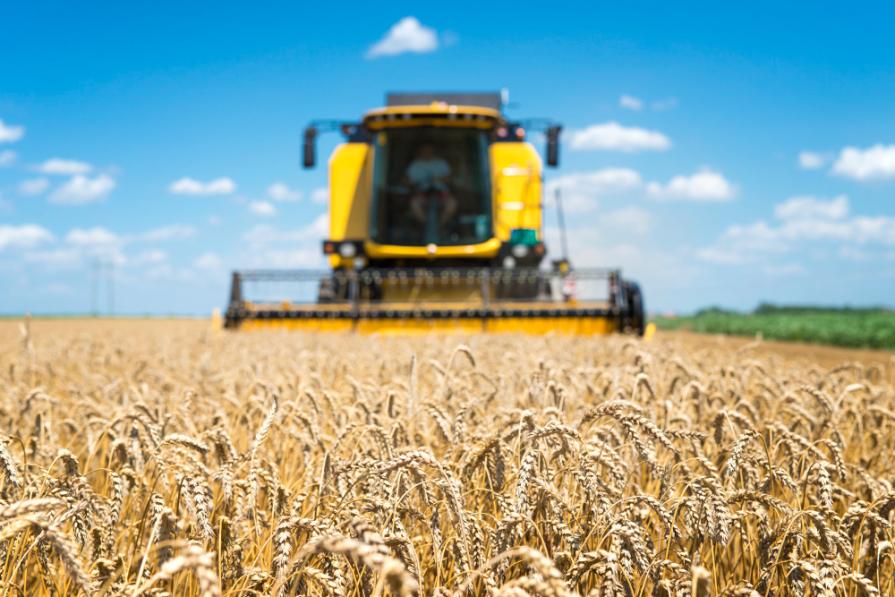Agriculture is no longer viewed simply as growing crops or raising livestock. In the modern world, this discipline affects areas such as business, geography, sociology, nature conservation, sustainable development.
Agricultural research focuses on a combination of studying the environmental challenges faced by farmers, the pressures of overcrowding and food shortages that worries governments and global corporations.
With the relentless growth of the world's population, today's generation of agricultural students will combine the fields of engineering, business, and politics to find a solution. Swedish universities study sustainable, efficient cultivation with minimal impact, conservation of animal and plant diversity. Sweden offers prestigious education in the field of agriculture, Swedish universities are developing programs that study modern aspects of agronomy, veterinary medicine, forestry, horticulture and sustainable development.

Why study agriculture in Sweden?
- Agricultural education in Sweden opens up the study of agricultural science for foreign students, ways of introducing innovative ideas, using appropriate modern technologies that can increase the production and quality of agricultural products.
- Swedish universities conduct research in the field of biological natural resources, sustainable development of urban and rural areas, aimed at improving the quality of life, welfare of people and animals.
- Agricultural research is part of the global context, leads to job creation, contributes to the development of the agricultural sector and society as a whole.
Requirements for admission to universities in Sweden with the study of agriculture

Admission requirements depend on the subjects you choose to study in agricultural courses. For most undergraduate courses, this is the 3-discipline A-level equivalent / International Baccalaureate qualification.
If English is not your first language, an English test is required.
A university's ranking also affects the requirements for admission to courses.
Structure of agricultural courses in Sweden

Agricultural science courses last 3 to 4 years. Disciplines include rural studies, species conservation, rural social sciences, resource management, landscape ecology, environmental studies, and economics and management.
- In the first year, modules cover geography, business management, economics, agriculture, wildlife, forestry, sociology, ecology.
- 2nd year modules include wildlife habitat management, human impact on the environment, food production, technology, insecticide and pesticide use.
- In the 3rd year, students begin a research project that may be related to industrial practice. The modules also cover topics related to agricultural policy, strategic marketing, species conservation, resource management.
Agriculture and related subjects is a vast area. It includes the study and conservation of wildlife, the ability to get the most out of efficient production methods. The program provides basic knowledge about business, the financial side of running an agricultural business.
ONCAMPUS SLU Swedish University of Agricultural Sciences (only MS)

The Swedish Agricultural Sciences University (SLU) is a world-class university in the life sciences and the environment. SLU campuses are located in several locations in Sweden with the main campus in Uppsala, Alnarp, Umeå, Skara. SLU is ranked among the best universities in the world, ranked 36th in the world in the Times Higher Education Ranking and is Sweden's Best Young University.
SLU is a young university. It was founded in 1977 from the agricultural, forestry and veterinary university colleges, the Skar Veterinary School and the Skinnskatteberg Forestry School.
SLU plays a unique role among Swedish universities thanks to the Environmental Monitoring and Assessment Commission. Its work is based on the needs of society for environmental standards, international obligations and the overall goal of long-term sustainable development.
SLU has 34 departments and divisions, 4,000 students, and several undergraduate programs, including vocational courses that continue at an advanced level after the first three years.
- Agrarian economy
- Agronomist
- Biology and ecology
- Master of Science in Energy Systems
- Master of Science in Environment and Water Management
- Animals and resilience
- Veterinary nurse
- Economy and sustainable development
- Ethology and animal welfare
- Forest and landscape
- Hippology
- Gardening
- Forestry
- Landscape architect
- Landscape engineer
- Surveyor
- Food program
- PhD in Political Science - Sustainable Development
- Community development in rural areas
- Plant growing program.
The cost of training at SLU - from 10 450 € / year.









